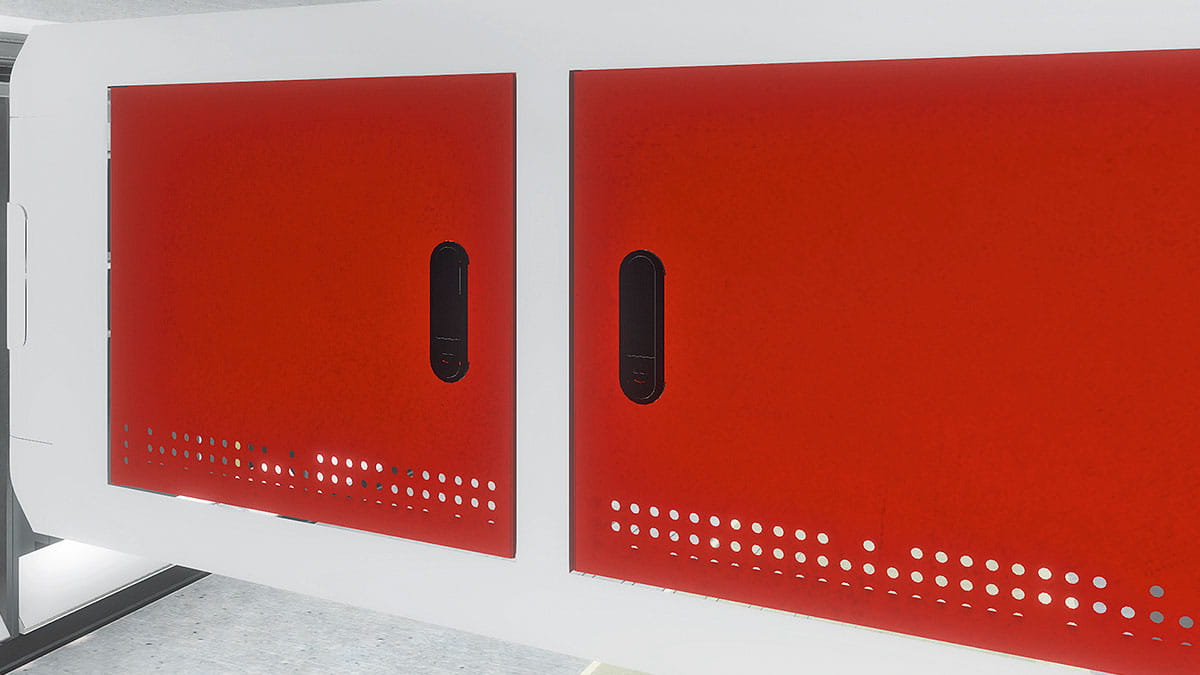Oerlikon Barmag’s new advanced technology Wiping Robot, offered to the yarn manufacturers, makes the cleaning of the yarn nozzles automatic. Following its installation at several major yarn manufacturers in China, the first wiping robot has now been operating in India since the end of 2019. As already the case with their Chinese clients, the performance of the Oerlikon Barmag solution there demonstrates the same properties: an even, high-quality wiping process providing considerably reduced yarn break rates and higher full package rates. Regular wiping (cleaning) of the spin packs is important for process stability and yarn quality.
The performance data at the Indian yarn manufacturer was collated and evaluated over a period of three months. The results revealed that the yarn break rate has – regardless of the product – fallen by almost 30%. The former running time breaks have decreased by 10% and string-up breaks by 40%. Consequently, full package rates have risen by 3%, while waste rates have fallen by 0.2%.
The wiping robot operates in a cross-line manner
“Yarn breaks are always an issue; they have a direct impact on the production figures. This is where the wiping robot reveals its added value”, comments Stephan Faulstich, Technology Manager POY at Oerlikon Barmag. The system automatically and autonomously controls the individual positions in accordance with the scheduled wiping cycles. In addition to the scheduled wiping processes, there are also events that cannot be planned or that are not immediately visible. Here, the wiping robot – as a result of its management functionalities – is able to identify issues such as yarn breaks or parallel wiping processes and to independently offer solutions. The same also applies to manual requests: if another action is simultaneously required here, the system identifies this and offers solutions.
The wiping robot operates in a cross-line manner. In contrast to manual wiping, the cleaning quality remains constant around the clock, considerably reducing the impact of the wiping on both the spinning plant process stability and on the yarn data of the spun yarn. And production times can be increased between two cleaning cycles as well: whereas repeated wiping is required after 48 hours in the case of manual wiping, utilizing the robot extends the interval between two wiping processes to up to 60 hours. The considerable increase in the spinning process efficiency achieved by the wiping robot also has a positive impact on margins. To this end, a customer deploying the wiping robot was able to reduce its production costs for the same yarn by more than 3%.

More intelligence, less work
Wiping robot makes operator’s life easier. A prime example of an automated solution: cleaning spinnerets. Thanks to its intelligent control system, the Oerlikon Barmag wiping robot not only saves production time, work and operating costs, it also generates benefits for HR and health management.
Sure, manual work also has its benefits. However, nobody – and particularly not operators – look forward to manually wiping the spinnerets in the spinning head. In a fiercely hot environment, it involves using a brass tool to remove residual melt from the extruded filaments from the spinneret. Here, lots of silicone oil is atomized from aerosol cans. In view of this overall extremely elaborate measure and the costs involved, production managers are hardly thrilled by the prospect of carrying out this task.
Because a maintenance job of this nature practically cries out for automation, Oerlikon Barmag has developed the wiping robot. And a smart one at that, as its control unit is able to communicate with the production system. “This intelligent control system contains the solution’s actual expertise, which networks machines and processes – very much in line with the Industry 4.0 concept”, explains Stephan Faulstich. Initially, this means: the information relating to all wiping positions, cycles and times can be saved in the management system. The robot accesses the saved wiping intervals in an automated and safety-relevant manner; without manual intervention, but accompanied by a whole range of advantages.
The wiping robot can cope with up to 48 positions
To this end, the robot can cope with up to 48 positions, corresponding to one entire production line. Both the wiping quality and the oil application remain constant around the clock. Furthermore, the silicone oil from canisters deployed here costs just a fraction of the manually-utilized 500-milliliter (ml) spray cans; which contain merely 12 ml of oil; as the lion’s share is made up of propellant gases that are harmful to health and environment. So, applying oil from canisters saves costs for the procurement, storage and disposal of spray cans.
However, more decisive here is the impact of the intelligent control system; with whose help the spinning pump can be moved up and down in an automated and ‘in-time’ manner. To this end, pump stops can be kept to the absolute minimum using a robot; considerably reducing the impact of the wiping on both the polycondensation system process stability; and on the yarn data of the spun yarn. And production times can be increased between two cleaning cycles as well; whereas repeated wiping is required after 48 hours in the case of the manual process; utilizing the robot extends the interval between two wiping processes to up to 60 hours. Customers have already been benefiting from such optimized times; Oerlikon Barmag wiping robots have been operating at two major yarn manufacturers in China for well over a year now.



